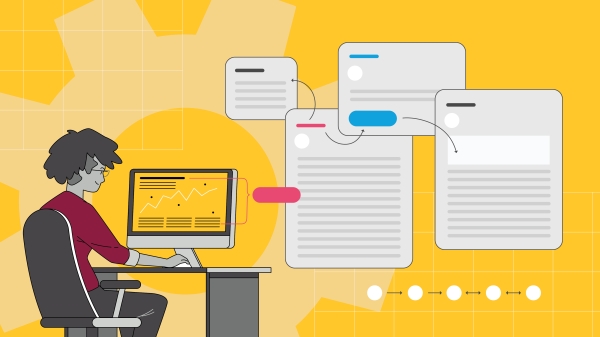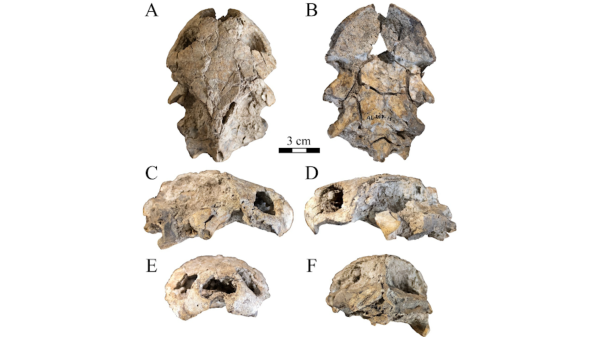Editor's note: This story is being highlighted in ASU Now's year in review. To read more top stories from 2017, click here.
It can be tough getting an accurate diagnosis.
A recent report from the Institute of Medicine found that “most people will experience at least one diagnostic error in their lifetime, sometimes with devastating consequences.”
With this in mind, a team of researchers at SkySong, the ASU Scottsdale Innovation Center, has been working on an app that they hope will make things better. Founded by ASU alums Robert Yao and Neel Mehta, EpiFinder uses machine learning and artificial intelligence algorithms to help ensure more accurate diagnoses and treatments.
“One thing that’s so awesome about the application is that it’s very adaptive,” Mehta, who studied biomedical informatics at ASU, said. Mehta said doctors can search symptoms or use a checklist, making it comprehensive, fast and easy to use.
The app is geared toward doctors and not available to the general public. It’s being beta tested by a handful of doctors, including a Phoenix-based neurologist at the Mayo Clinic and an Austin, Texas-based epilepsy center, said Yao, who also studied biomedical informatics at ASU.
“Doctors are telling us, with all the technology that's coming out, it adds time to their day,” Yao said. “We made sure we built the app for them, to improve their workflow, so they’re not spending so much time entering data.”
He said he hopes that streamlined workflow allows doctors to spend more time “actually interacting with and listening to their patients.”
Their app, which has been under development for several years, is nearing the end of its first phase of live testing. They say it gets more accurate and comprehensive with each new diagnosis and that they hope to make updates and have a version that’s ready “to go to market” this quarter. The EpiFinder website is getting an overhaul as well, and will debut later this week.
The app has been used to help identify diseases including epilepsy. It didn’t get its name from the brain disorder that causes seizures, however. For conditions that are tough to identify, Yao said, the developers hope to help doctors and patients “find their epiphany.”
Yao came up with the idea for the app more 10 years ago when he was bedridden with a rare rheumatologic condition. At first, no doctor could figure out what was wrong.
“At that time, not only did I have the expertise,” Yao said, “but I had the motivation to figure it out myself.” Recognizing that not all patients would be in such a situation, he built what he calls a sort of “medical map” to help people with hard-to-diagnose symptoms.
“I very much had that similar experience that people who have gone through misdiagnoses have had,” he said.
After creating the model, Yao connected with Mehta at ASU. Mehta, who has an entrepreneurial background from trying to launch several tech startups, helped turn the map into an app that can diagnose thousands of diseases.
The app was selected by Seed Spot, a Phoenix-based social incubator that provided office space and mentoring. Soon after, EpiFinder was chosen to receive $20,000 in funding and support from ASU’s Edson program.
“As a part of ASU’s Edson program, we’ve been provided with a lot of opportunities, such as office space, mentorship, connections and grant funding,” Mehta said.
Lasat year, EpiFinder was awarded a $30,000 Flinn Foundation Bioscience Entrepreneurship grant from the Flinn foundation, a Phoenix-based grant making organization.
Today, EpiFinder is an app for iPads and iPhones that doctors can use to help with accurate diagnoses.
Doctors simply pull out the app, go through a checklist that allows them to account for each patient’s symptoms, and a list of possible diagnoses pops up, with a percentage of likelihood for each. Then, the ultimate diagnostic decision lies in the hands of the doctor.
“We’ve taken all this research,” said EpiFinder operations manager Harsh Patel, “and put it in the back end” — this way, “doctors don’t have to go through all that research themselves to come up with a diagnosis. We did the hard work for them.”
More Science and technology

New research by ASU paleoanthropologists: 2 ancient human ancestors were neighbors
In 2009, scientists found eight bones from the foot of an ancient human ancestor within layers of million-year-old sediment in the Afar Rift in Ethiopia. The team, led by Arizona State University…

When facts aren’t enough
In the age of viral headlines and endless scrolling, misinformation travels faster than the truth. Even careful readers can be swayed by stories that sound factual but twist logic in subtle ways that…

Scientists discover new turtle that lived alongside 'Lucy' species
Shell pieces and a rare skull of a 3-million-year-old freshwater turtle are providing scientists at Arizona State University with new insight into what the environment was like when Australopithecus…
